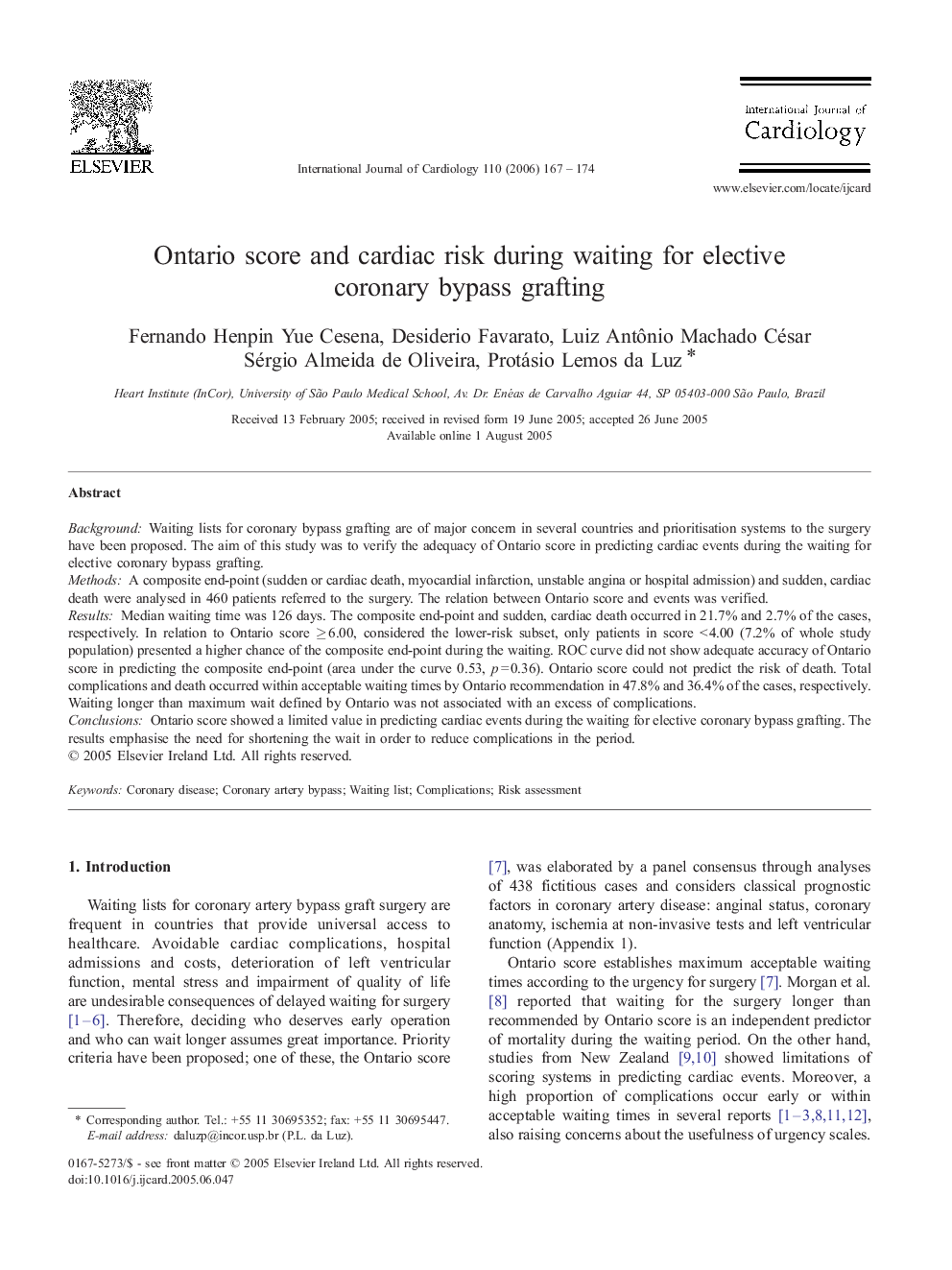| Article ID | Journal | Published Year | Pages | File Type |
|---|---|---|---|---|
| 2936295 | International Journal of Cardiology | 2006 | 8 Pages |
BackgroundWaiting lists for coronary bypass grafting are of major concern in several countries and prioritisation systems to the surgery have been proposed. The aim of this study was to verify the adequacy of Ontario score in predicting cardiac events during the waiting for elective coronary bypass grafting.MethodsA composite end-point (sudden or cardiac death, myocardial infarction, unstable angina or hospital admission) and sudden, cardiac death were analysed in 460 patients referred to the surgery. The relation between Ontario score and events was verified.ResultsMedian waiting time was 126 days. The composite end-point and sudden, cardiac death occurred in 21.7% and 2.7% of the cases, respectively. In relation to Ontario score ≥ 6.00, considered the lower-risk subset, only patients in score < 4.00 (7.2% of whole study population) presented a higher chance of the composite end-point during the waiting. ROC curve did not show adequate accuracy of Ontario score in predicting the composite end-point (area under the curve 0.53, p = 0.36). Ontario score could not predict the risk of death. Total complications and death occurred within acceptable waiting times by Ontario recommendation in 47.8% and 36.4% of the cases, respectively. Waiting longer than maximum wait defined by Ontario was not associated with an excess of complications.ConclusionsOntario score showed a limited value in predicting cardiac events during the waiting for elective coronary bypass grafting. The results emphasise the need for shortening the wait in order to reduce complications in the period.
